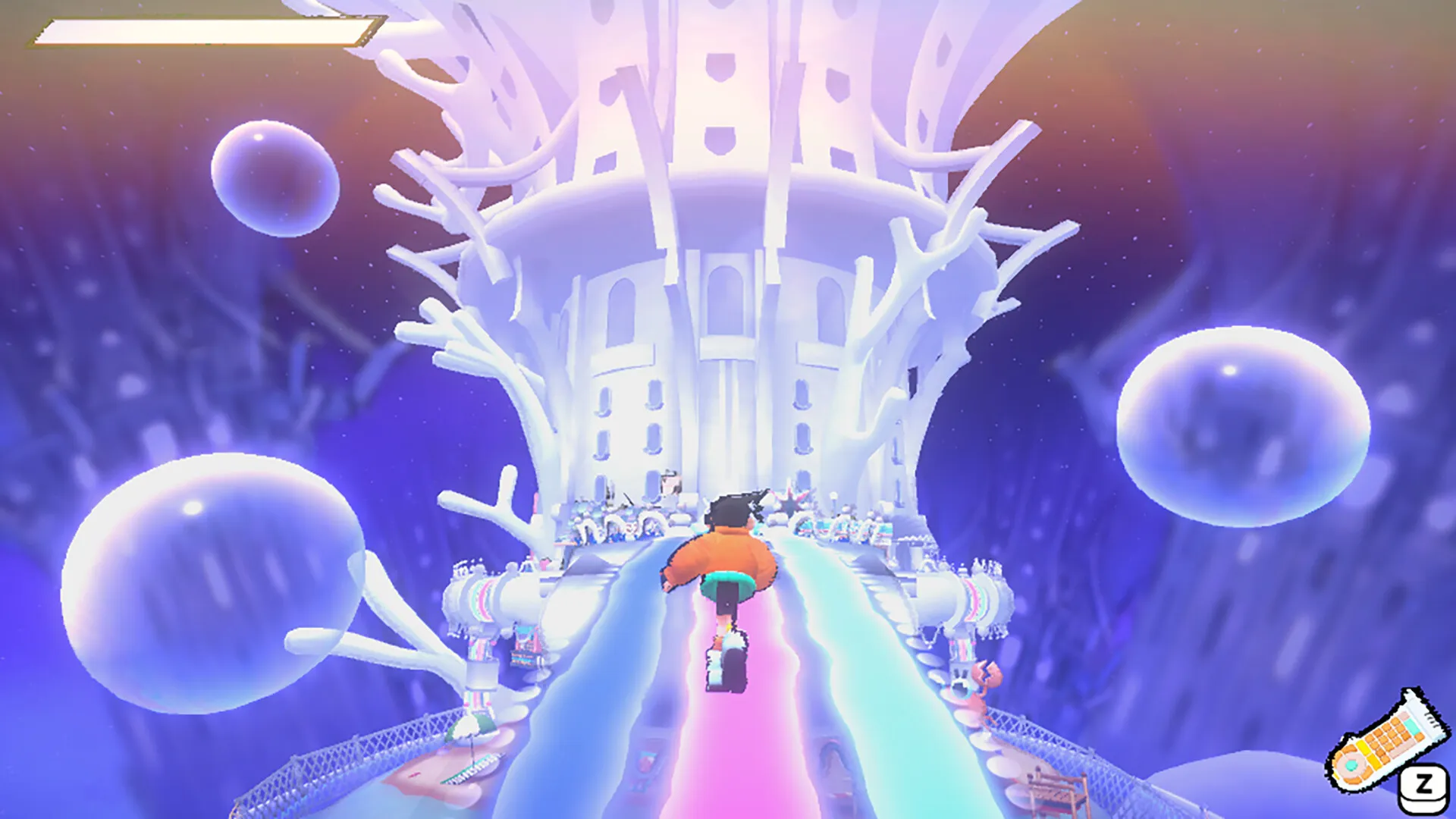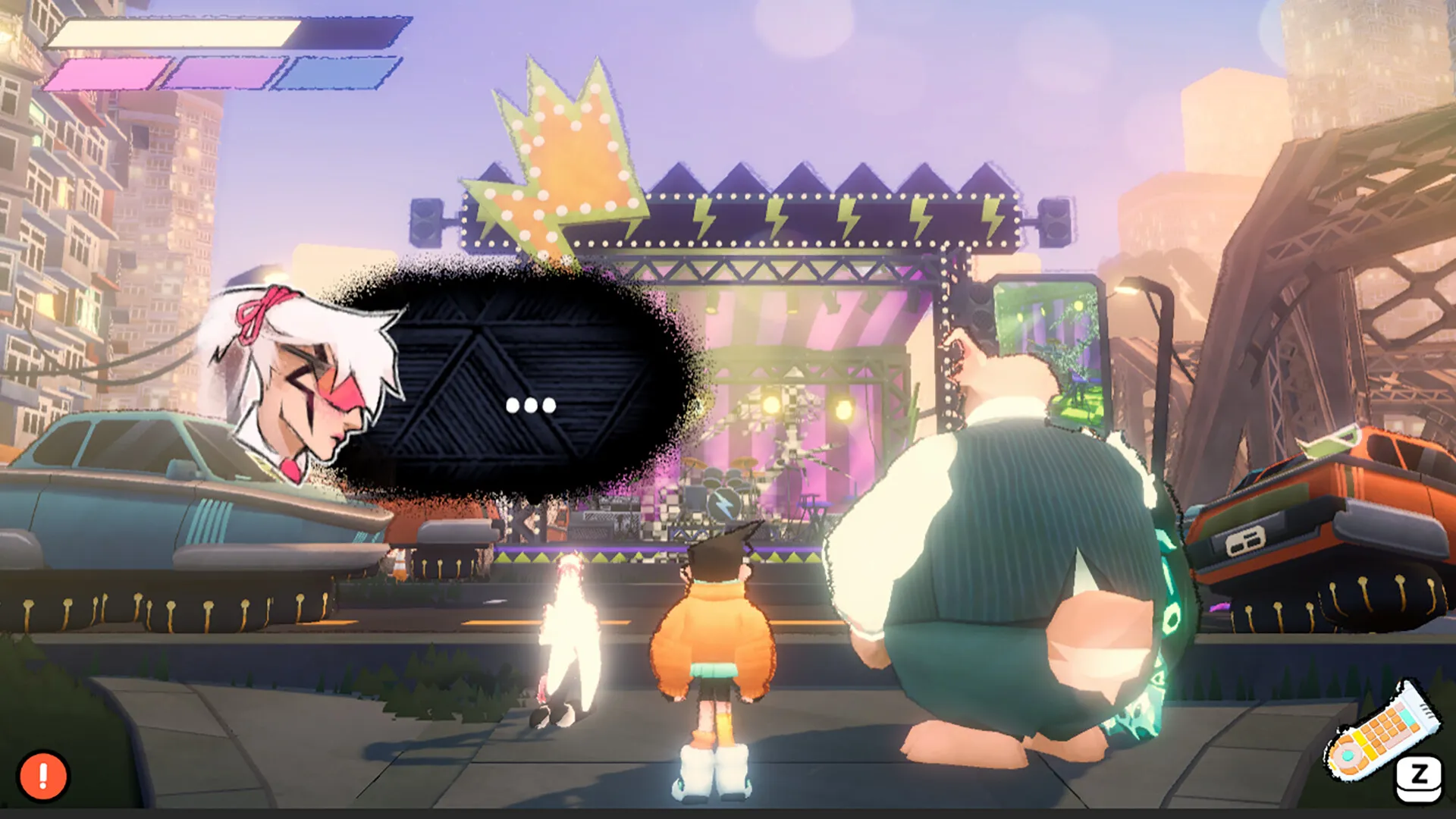Stepping onto a mist-shrouded platform, Proto’s wide-eyed pause sets the tone for FREERIDE’s quiet mystery. In this narrative exploration experience, you assume the role of Proto, summoned aboard a ghostly locomotive bound for a realm where lost spirits linger. Rather than testing reflexes, the game watches how you respond to every encounter, recording your decisions and whispering them back at you later.
Visually, FREERIDE wears a pastel palette and low-polygon models that nod to late-’90s 3D adventures, yet its pacing is more reflective than platforming. Each playthrough spans roughly three to four hours, with branching conclusions shaped by your interactions. There are no ticking countdowns or hidden collectibles demanding scrutiny—only open fields, curious apparitions, and a gentle invitation to engage.
In this review, I’ll examine how the narrative unfolds through character work, how the mechanics reinforce emotional stakes, and how the presentation amplifies each beat. Along the way, we’ll consider the game’s strengths and friction points, drawing parallels to other introspective indies and even classic films that blend story with viewer agency. By the end, you’ll have a clear sense of what makes FREERIDE a memorable detour into personal reflection.
Spirits with Stories to Tell
Proto’s arrival in the spirit world—ushered in by the elegant conductor Lepida—serves as a gateway to several distinct regions, each populated by ghosts wrestling with lingering doubts or regrets. In one sunlit beach market, a crab-headed chef pours his heart into a seaside kitchen, masking loneliness behind brash humor. Elsewhere, a shy spirit replays past taunts at a schoolyard, shivering beneath the weight of unspoken hurts. These contrasts reveal the designer’s gift for quick emotional sketches: laughter and melancholy coexist in every corner.
Conversation is the primary tool for connection. You choose whether to comfort an anxious spirit, challenge someone in denial, or step aside and observe. These choices leave subtle echoes—an NPC might recall your kindness or bristle at your indifference in a later scene.
Midway through each act, the game pauses to prompt you to reflect on how you’ve treated these souls, framing your behavior without assigning grades. At the finale, a summary screen lays out your patterns—your tendencies toward empathy, curiosity or reserve—without shaming or lauding. It feels less like a personality quiz and more like a mirror held up to your impulses.
Moments of comic relief—such as a rambunctious duo who trade jokes between heartfelt confessions—lighten heavier reflections, while quieter interludes linger, reminding you that even small acts of attention can matter.
Wander, Listen, Influence
FREERIDE invites free exploration: no GPS markers point the way, and no tutorial hand-holds your hand. Instead, you roam grassy knolls or misty bridges, guided by curiosity rather than objectives. Wandering often reveals new dialogue branches, rewarding patient players who pause to observe environmental clues rather than hunting for hidden trinkets.
At its heart, dialogue choices branch organically, and there are no “best” answers—only responses that feel aligned or at odds with each spirit’s mood. Return to a character you gently challenged earlier, and you may find their tone sharper or quieter, depending on that first impression.
A telekinesis mechanic adds an extra layer: Proto can lift objects or gift items to spirits, theoretically heightening engagement. In practice, lining up those throws can feel fiddly, especially in moments where timing counts. A protective scene, for example, asks for a quick toss of a barrier, but the targeting can misalign, leaving you watching helplessly as the moment slips away. These hitches are rare but noticeable—they nudge you out of immersion when your intention and the game’s response diverge.
There are no reflex-heavy challenges here—aside from a handful of physics puzzles and brief defensive sequences—but those flashes of action don’t overtake the calm flow. Accessibility settings keep speed or timing demands minimal, letting the narrative pulse remain front and center.
Pastel Worlds, Lasting Impressions
FREERIDE’s visual style is a study in soft contrasts: rose-tinted skies bleed into teal waters, while low-poly trees sway with simple elegance. Each region’s palette cues your emotions—warm sands for comfort, pale purples for uncertainty, cool blues for introspection. Character animations, from a forlorn spirit’s drooped shoulders to a jubilant laugh, reinforce individual personality traits in ways that dialogue alone could not.
The soundtrack further colors each locale. A breezy, upbeat melody carries you through the crab-chef’s kitchen, while a hushed piano motif underscores late-night confessions. Ambient sounds—rustling leaves, distant chimes—ground the fantasy in tactile detail.
Replay value rests on multiple endings and distinct player profiles. Revisiting the train platform with new intentions unlocks fresh interactions and alternative fates for spirits you met before. Hidden dialogue options emerge for those willing to question every prompt. A second journey can feel like meeting old friends in new circumstances, deepening your understanding of both the world and yourself.
Technical hiccups appear only occasionally: a frame rate dip during crowded scenes, or a soft freeze requiring a quick reload. Loading times are brief on PC, and stability has improved through recent patches. Still, I recommend saving whenever possible—those rare glitches are easiest to shrug off if you can restart a few steps back.
The Review
FREERIDE
FREERIDE delivers a quietly powerful journey, blending gentle exploration with meaningful choice-driven interactions in a dreamlike, pastel world. Its narrative shines through memorable spirits and self-reflective mechanics, even if telekinesis moments feel awkward at times. With striking visuals, a fitting soundtrack, and strong replay value, it rewards patience and introspection.
PROS
- Engaging, choice-driven narrative that reflects your play style
- Distinctive pastel, low-poly art direction with strong mood-setting
- Memorable spirit characters with emotional depth
- Soothing, context-sensitive soundtrack and ambient audio
- High replay value via multiple endings and personality profiles
CONS
- Telekinesis mechanic can feel clunky and imprecise
- Occasional frame drops or soft-lock bugs
- Short base runtime (3–4 hours) may feel brief
- Sparse guidance can leave some players directionless


















































